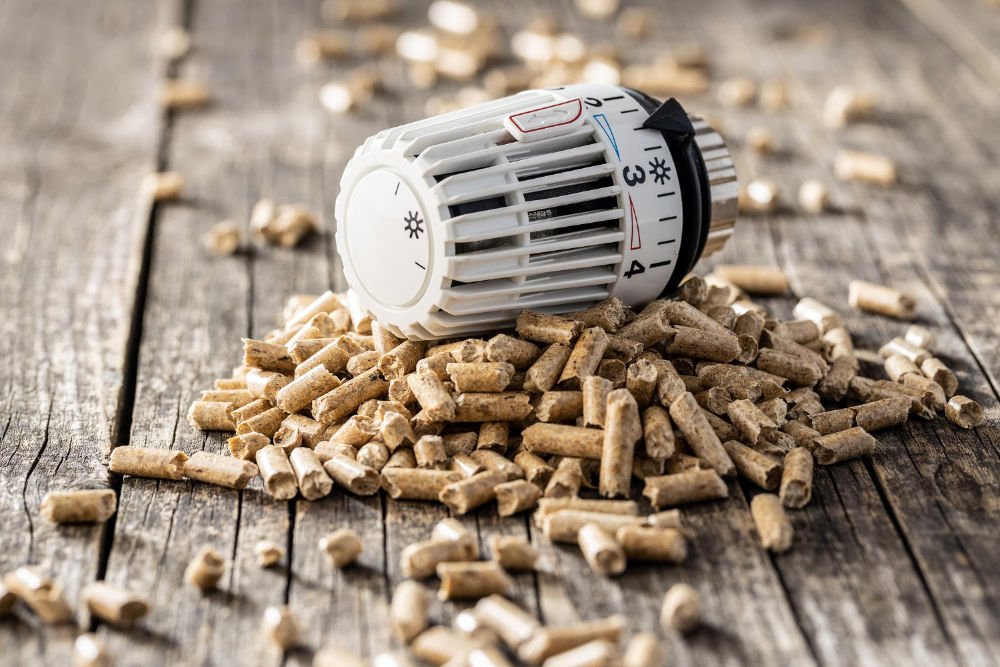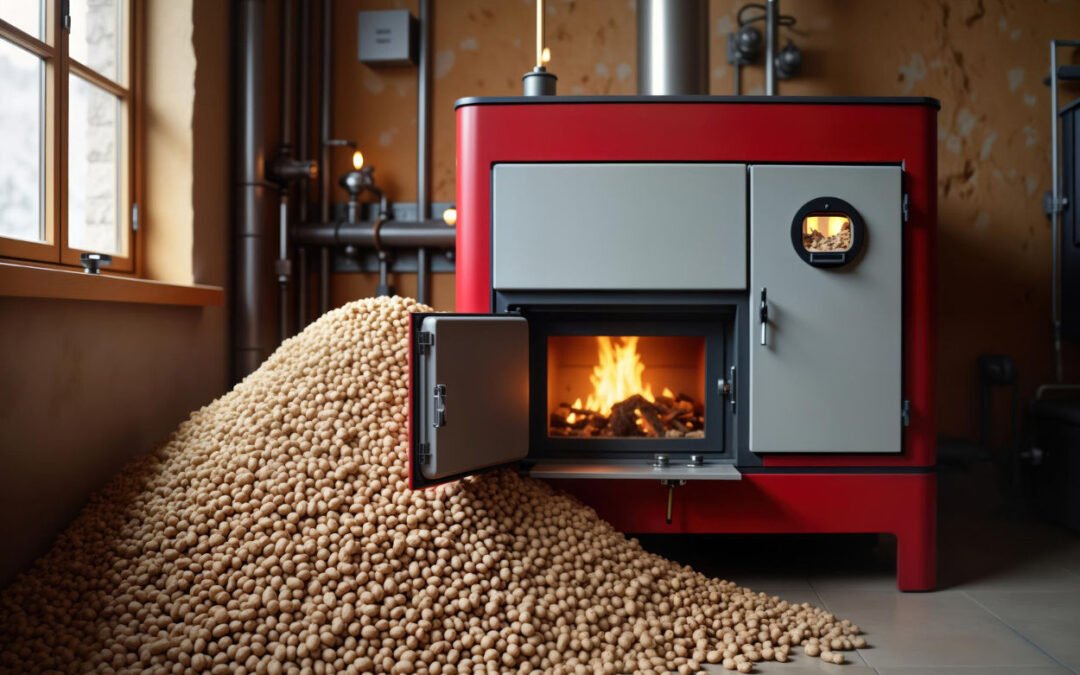The UK’s heating sector is going through major changes, driven by the urgent need to cut carbon emissions and reduce reliance on volatile fossil fuel markets. Among the alternatives available, biomass boilers have grown in popularity—particularly in rural areas and for larger properties—thanks to their ability to provide renewable, reliable heat. But one of the most common questions people ask is simple: What does a biomass boiler cost in the UK?
The answer is not straightforward, because the price of a biomass boiler depends on many factors, including size, type of fuel, property requirements, and the complexity of the installation. As an experienced biomass boiler engineer, I will outline in detail the costs you should expect, the factors influencing price, and the long-term financial picture of investing in biomass heating.
Typical Cost Range of Biomass Boilers in the UK
The price of a biomass boiler system in the UK typically falls between £5,000 and £30,000, depending on the model and application. For domestic properties, the most common systems range from £8,000 to £15,000, while larger commercial and industrial boilers may reach or exceed £50,000.
Here is a breakdown of average costs:
- Small log boilers (domestic scale): £5,000 – £8,000
- Domestic pellet boilers with hopper: £10,000 – £15,000
- Medium wood chip boilers (suitable for farms/schools): £20,000 – £40,000
- Large commercial systems: £50,000 – £100,000+
It’s important to note that these figures usually include the boiler unit itself, but not always the installation, fuel storage systems, or necessary adjustments to heating infrastructure.
Key Factors That Influence Biomass Boiler Prices
- Boiler Size and Output
Boiler size is measured in kilowatts (kW). A small domestic home may require a 15–25 kW boiler, while a large farm or commercial building may need 200–500 kW. Naturally, the larger the output, the higher the cost. Oversizing or undersizing can both create problems, so professional sizing is essential.
- Fuel Type (Pellets, Chips, or Logs)
- Pellet boilers tend to be more expensive due to automation technology and the precision of manufacturing.
- Log boilers are cheaper but require manual loading and more storage space for seasoned wood.
- Chip boilers are most cost-effective for large-scale systems but require sophisticated fuel feed mechanisms.
The choice of fuel will directly affect both the upfront cost and ongoing running expenses.
- Automation Level
Automated feed systems (using augers or vacuum suction for pellets/chips) increase convenience but add to system cost. Manual log boilers are cheaper to install but require far more user effort.
- Fuel Storage and Delivery System
A critical part of the total cost is the storage facility. For example:
- A small pellet hopper may add £500–£1,000.
- A large underground pellet silo can cost £3,000–£7,000.
- Chip storage with auger feed systems can cost even more, depending on size.
- Installation Complexity
Every property is different. Converting a modern home with an existing wet central heating system is usually straightforward. Retrofitting in older buildings, integrating with underfloor heating, or upgrading flues and chimneys can significantly increase installation costs.
- Location and Access
In rural areas, access for bulk fuel delivery lorries must be considered. Difficult access may require smaller deliveries or special storage solutions, both of which add cost.
- Additional Equipment
Biomass systems may need buffer tanks, thermal stores, pumps, or upgraded radiators to work efficiently. These items add several thousand pounds to overall system cost.
Running Costs and Fuel Prices
Installation is only part of the financial picture. Running costs are determined by fuel choice, boiler efficiency, and local supply prices.
- Wood Pellets: Average UK price is around £250–£300 per tonne (as of 2025). A typical home might use 3–6 tonnes annually, costing £750–£1,800 per year.
- Wood Chips: Around £100–£150 per tonne, but bulkier and requiring larger storage. Best suited for commercial use.
- Logs: Often the cheapest option, particularly if you have your own woodland supply. Purchased logs cost around £80–£120 per cubic metre, depending on region.
Compared with heating oil or LPG, biomass can offer annual savings—especially in larger buildings.
Maintenance Costs
Biomass boilers require more care than gas boilers. Typical maintenance costs include:
- Annual service: £200–£500 depending on boiler type.
- Ash removal: Log boilers may need weekly cleaning, while pellet systems may only need monthly checks.
- Replacement parts: Fans, augers, or sensors may eventually need replacing, typically £200–£1,000.
Factoring in these maintenance costs is essential for long-term budgeting.
Financial Support and Incentives
Historically, the UK’s Renewable Heat Incentive (RHI) provided significant payments to biomass boiler owners. While RHI closed to new applicants in 2022, other schemes and grants continue to emerge, especially as the government pushes towards net-zero targets.
Examples include:
- Boiler Upgrade Scheme (BUS): Currently focused on heat pumps, but future expansions may include biomass for off-grid properties.
- Local authority schemes: Some councils offer funding or low-interest loans for renewable heating.
It is always wise to check for the latest grants before committing to a purchase.
Long-Term Value of Biomass Boilers
Although upfront costs are high, the long-term financial case can be strong. Key considerations:
- Payback period: Typically 7–12 years depending on fuel savings and any subsidies.
- System lifespan: Well-maintained boilers last 20+ years.
- Fuel security: Biomass prices are less exposed to international volatility than oil and gas.
- Resale value: Properties with renewable heating may have higher market appeal.
Example Cost Scenario: A Domestic Home
- Property type: 4-bedroom detached home, off gas grid.
- Boiler: 25 kW pellet boiler with automated feed.
- System cost: £12,500 for boiler + £3,500 for installation/storage.
- Annual fuel cost: 4 tonnes pellets × £275 = £1,100.
- Savings vs. oil heating: Approx. £500 per year.
- Payback: Around 10–12 years (shorter if grants available).
Example Cost Scenario: A Commercial Farm
- Property type: Mixed-use farm requiring space heating and hot water for multiple buildings.
- Boiler: 150 kW chip boiler with auger feed.
- System cost: £40,000 for boiler + £15,000 for storage and installation.
- Annual fuel use: 60 tonnes chips × £120 = £7,200.
- Savings vs. LPG: Approx. £6,000–£8,000 per year.
- Payback: 7–8 years.
Advantages and Disadvantages of Biomass Boiler Pricing
Advantages:
- Potential long-term savings on heating bills.
- Reduced exposure to fossil fuel price swings.
- Strong sustainability credentials.
- Grants or subsidies (when available) improve affordability.
Disadvantages:
- Very high upfront cost compared to gas/oil boilers.
- Ongoing maintenance expenses.
- Storage space requirements may add hidden costs.
- Financial payback relies on stable fuel supply and prices.
Conclusion
The price of a biomass boiler in the UK is not a fixed figure but a spectrum influenced by system size, fuel choice, property requirements, and installation complexity. For domestic homes, expect to invest £10,000–£15,000, while commercial and industrial setups can exceed £50,000.
While these systems demand significant upfront capital, the long-term benefits include lower running costs, protection from fossil fuel volatility, and contribution to a cleaner energy future. For rural properties, farms, schools, and large commercial sites, biomass boilers remain a highly practical option.
The key is to view the investment not just as a purchase but as a long-term energy strategy. With professional design, reliable fuel supply, and proper maintenance, a biomass boiler can provide decades of sustainable heating while paying for itself through savings and stability.
If you’re interested in learning more about biomass boilers and how you can contribute to sustainable energy solutions, consider contact with an experienced biomass boiler engineer from Proadvance Ltd from Reading, Berkshire.



